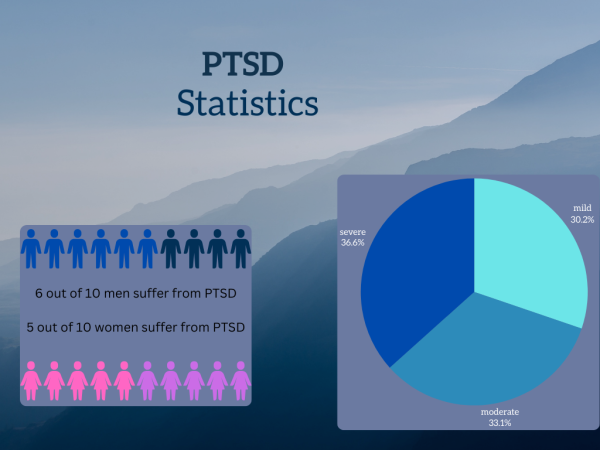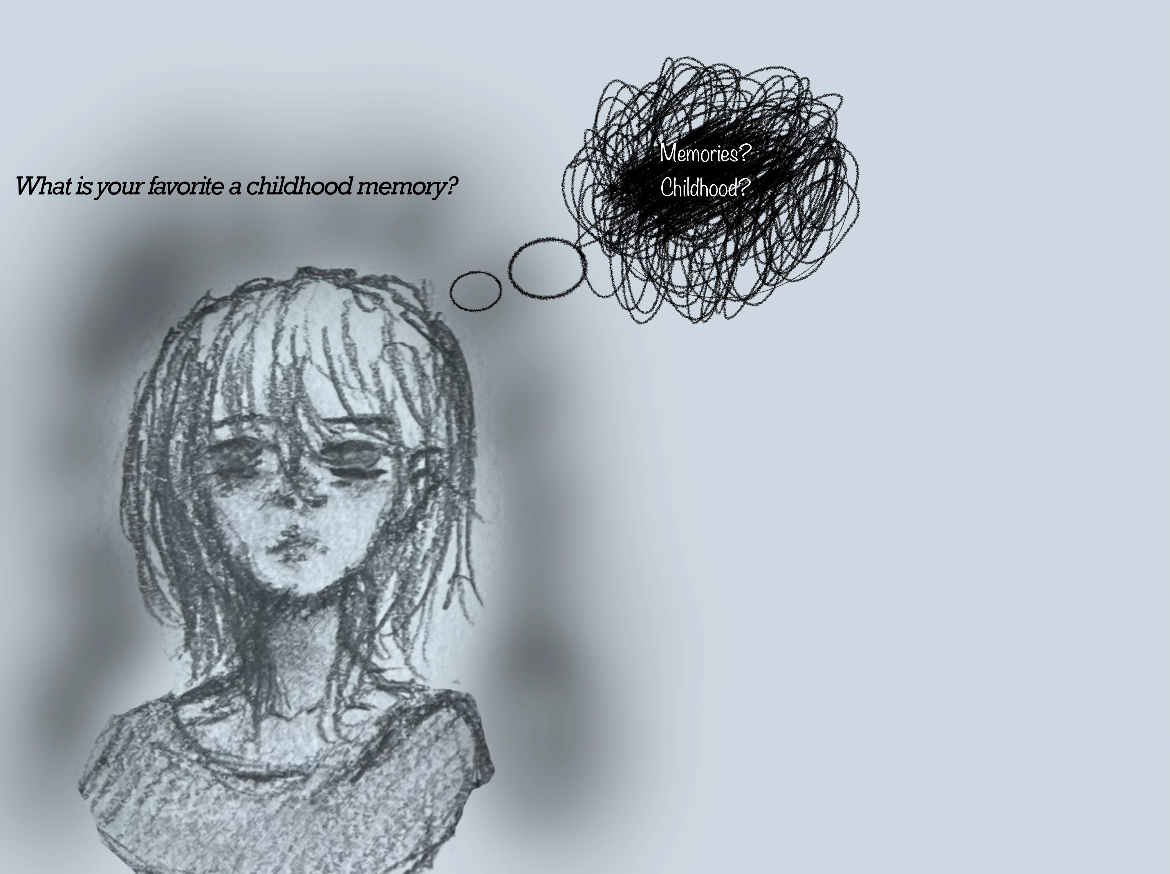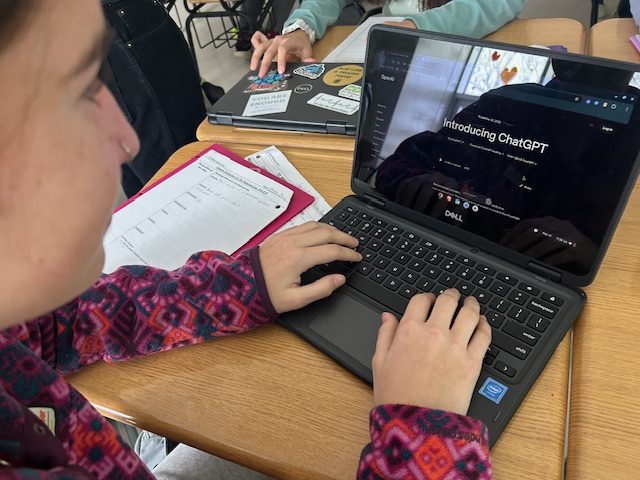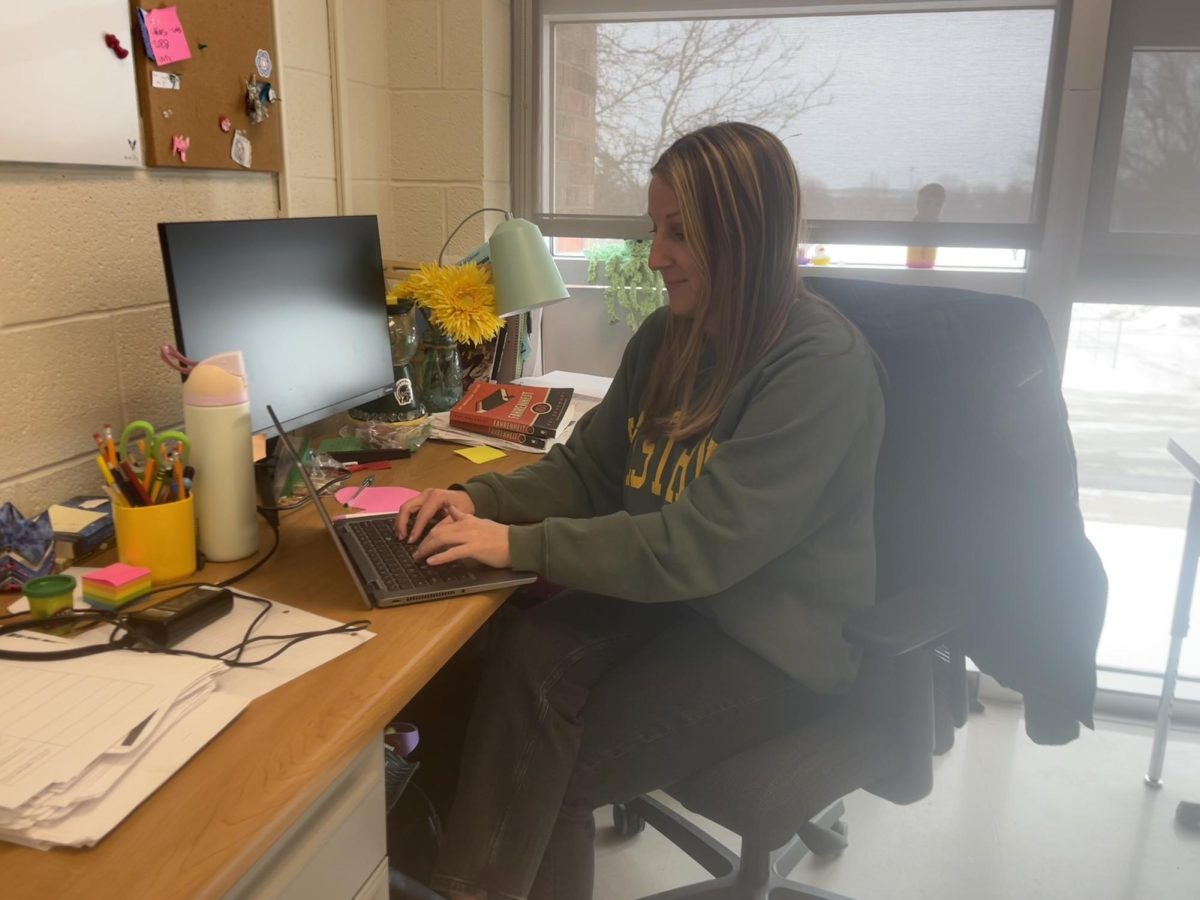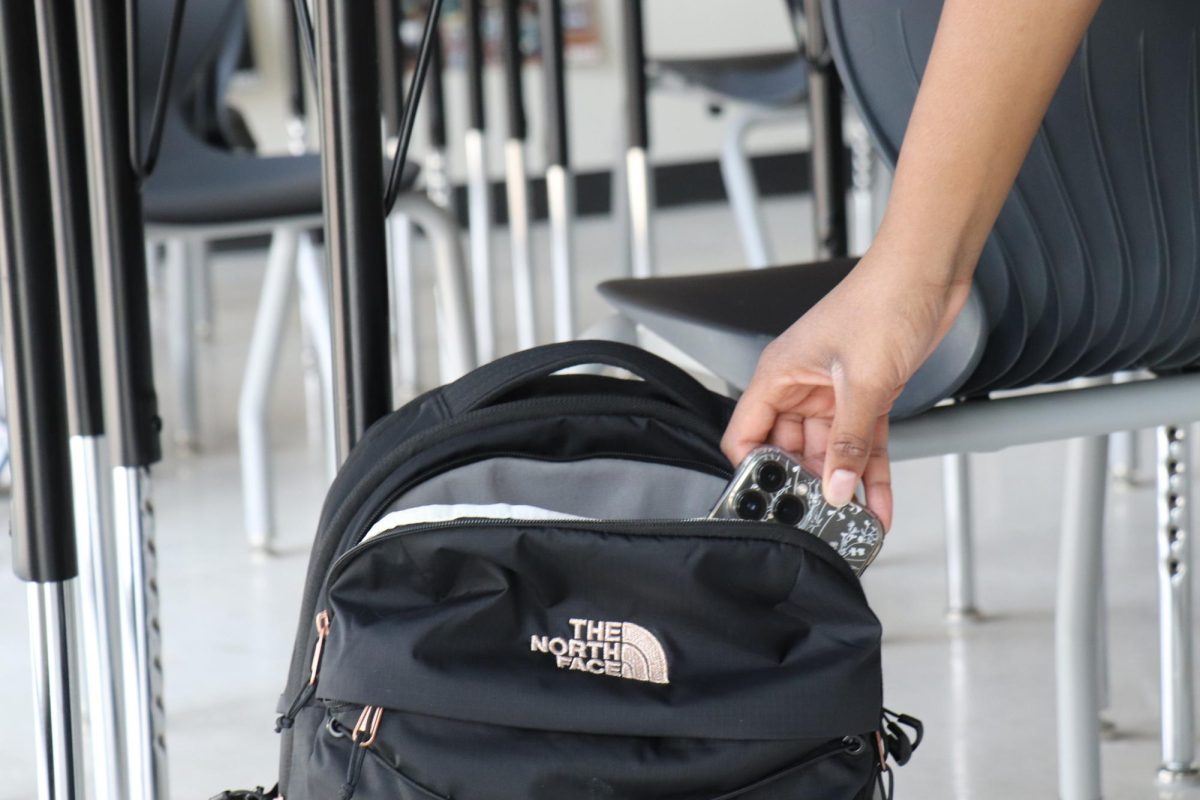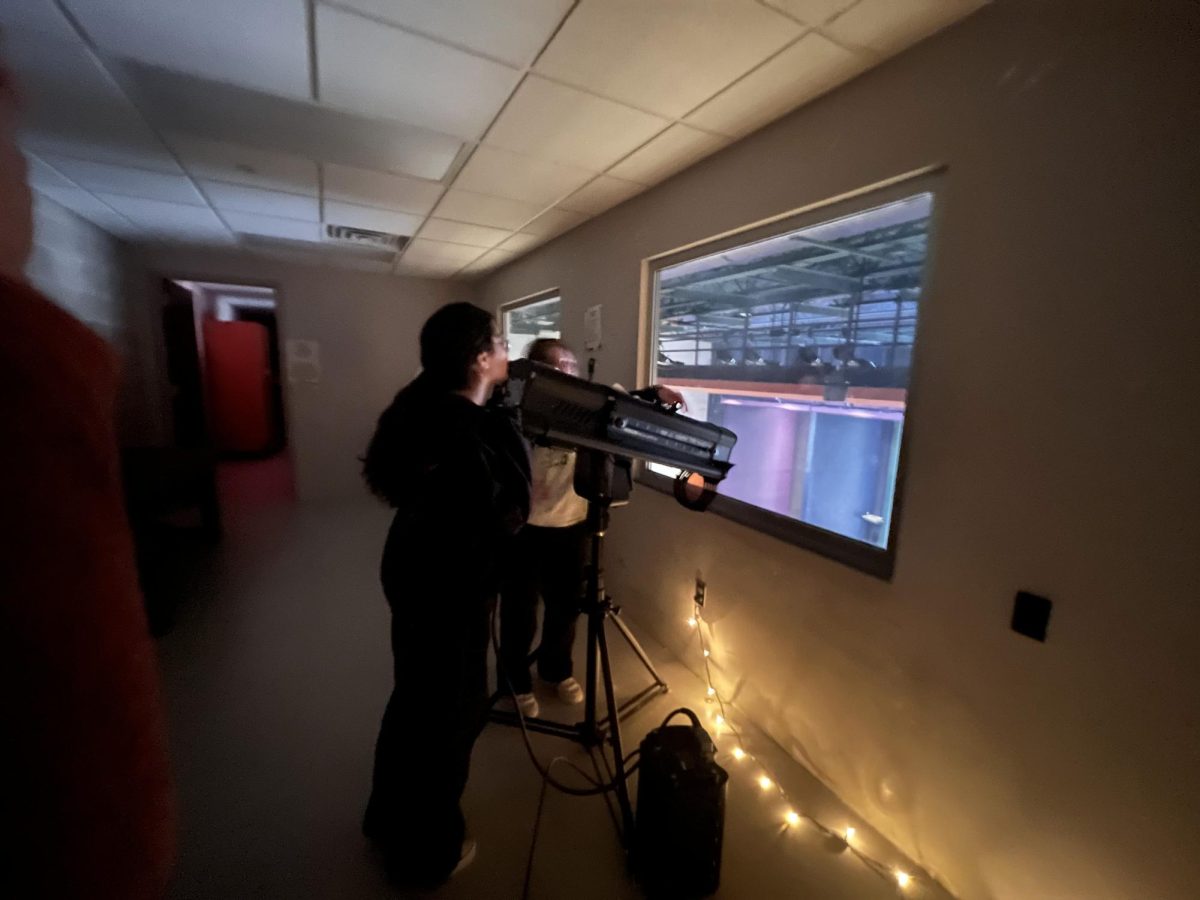With the growing interest in psychology and mental health at West High, here are some things you should be aware of about PTSD and how you can support your classmates or people around you.
What is PTSD
Post Traumatic Stress Disorder (PTSD) is a mental health condition that occurs after experiencing or witnessing a traumatic event.
Causes
There are many causes of PTSD, the most known ones are abuse, sexual trauma, and physical and mental trauma,
A family member, a friend, a person of power, or a partner can cause trauma from abuse. If you’re currently in an abusive situation please report it to a grown-up you trust.
Abuse and torture (childhood trauma/abuse, physical, emotional, and mental abuse/torture)
Sexual abuse and assault ( this includes grooming, rape, date rape, and relationship sexual abuse)
Wars and line of work ( veterans, first responders)
Assaults, attacks, and crimes ( physical assaults, animal attacks, political attacks, robberies)
Losing someone close to you (family member, friend, your child)
(not everyone who has had a traumatic experience ends up developing PTSD)
Episodes & PTSD attacks
PTSD episodes and attacks are different for everyone but these are some common symptoms and signs of a PTSD episode/attack that you should look out for. PTSD attacks can last for hours on end. During an attack/ episode, you may experience intrusive thoughts, nightmares, visions, dissociation, or flashbacks. With flashbacks, they’re vivid memories of the traumatic experience. A lot of the physical features you can experience are a rapid increase in heart rate, shaking, difficulties in breathing, and sweating.
Flashbacks vs. Thinking about a Memory
The difference between a flashback and thinking about memory is whether a person knows they’re in the present moment. Thinking of a memory is where you know you’re still in the present and that the memory you’re thinking about is truly a memory. When it’s a flashback the person is back in that memory. The person experiencing the flashback will be physically, emotionally, and mentally back in that memory. For them it would be the same feeling as reliving the trauma, it’s like watching it through VR.
Intrusive memories
Intrusive memories can be experienced as flashbacks, nightmares, and intrusive images. When someone experiences these memories, they would lack awareness that these memories are from the past.
These memories are usually triggered by one of the five senses
vision
hearing
Smell
taste
touch
Dissociation
When you have PTSD a common thing you experience is dissociation.
The definition of dissociation is the process of disconnecting from one’s self/identity, mind, thoughts, memories, world, and body.
dissociative identity disorder
dissociative amnesia
depersonalization/derealization
types of dissociative amnesia
localized – unable to remember an event or period of time (most common type)
selective – unable to remember a specific aspect of an event or some events within a period of time.
generalized – complete loss of identity and life history (rare)
Depending on the severity of dissociation you can experience different things.
If you suffer from mild dissociation some things you may experience are daydreaming, highway hypnosis, and “getting lost. What do all these experiences have in common? Losing your sense of touch, surroundings, and sometimes hearing.
Dissociation can help a person tolerate/ cope with the traumatic event. A person may dissociate the memory or specific details due to the overwhelming event, to escape the fear, pain, and horror. But it’s only helpful in the short term, in the long term it becomes a problem. When you’re stuck in the fight or flight or freeze mode, your body might think everything is a danger to you.
How it can affect you and others
How would you feel if a bus was coming towards you at full speed? frightened?
This is a question that most people who have PTSD say “I don’t know” and; end up suffering from alexithymia. Alexithymia is the Greek word for no words for feelings
Your body’s reaction
This is when Fight or Flight or Freeze comes in. Everybody’s reaction is different from each other. Some reactions that people have experienced are.
Sweating
Stomach ache/ trouble eating
Trouble falling and staying asleep
Exhaustion
Sadness
Confusion
Numbness
Irritation
Dissociation
Pounding and rapid heart rate
Rapid breathing
Feeling shaky
Giving up on your well-being
Severe headaches and migraines
Developing asthma attacks
Environmental triggers
Are where your environment, situations, and actions can trigger your PTSD. depending on what caused your PTSD can change your triggers.
Loud noises (fireworks, gunshots, booms)
Yelling and screaming
Physical touch (hugs, play fighting, a tap on a shoulder)
Places
People
Functions
Fight
For some people, their trauma response is the Fight. This is when someone becomes short-tempered, has aggressive behavior, and is unpredictable. They might feel like they need to be always right, mock people, and tend to need the final say ignoring others’ perspectives. The person won’t be able to control their aggression, because cortisol and adrenaline levels rise which makes it hard for them to think clearly. This might cause the person to feel shame/remorse post-outburst.
Flight
Flight is another term for avoidance. Many people who suffer from PTSD try to avoid memories, thoughts, situations, and feelings as much as they can.
With avoidance, if the person who has PTSD starts thinking about it and it becomes too much that they can’t avoid it anymore they make themselves go numb so it’ll stop affecting them in the given moment. In the long term, it’ll start affecting them more and more. One who’s trying to avoid PTSD will avoid situations/ activities that remind them of the traumatic event. They may even become dissociated from activities that they enjoy. When dealing with avoidance they’ll try to avoid any reminder of the intendant. At first many will stay silent and try to forget it ever happened but as time goes on it’ll consume their entire being and isolate them from everyone and it’ll become unavoidable
Freeze
Most of the time people only talk about Fight or Flight, but what about Freeze?
Sleep Patterns
During the day, someone with PTSD might try to push away or try to avoid trauma memories, which can lead those feelings to worsen at night. Having trouble falling asleep or staying asleep can accompany other mental health conditions, but sleep problems with PTSD is considered a part of the disorder. Some of the symptoms are:
Avoid going to sleep. The flashbacks and nightmares make the person feel like they’re reliving the trauma, causing them to think going to bed is unsafe.
Where you can find help and seek treatment
Through your health care provider
Therapy that specializes in PTSD
Better Help provides online therapy
Veterans can go to the VA
Different types of treatments can include
Cognitive therapy
Prolonged exposure
Electroshock therapy (depending on the severity)
How you can get help through the school
Interviewing the Family student advocate teacher, Ms. Dougan
Would you like to introduce yourself?
My name is Christine Dougan. I am a student and family advocate at West High School. I use she/her pronouns.
What steps is West taking to help kids with their mental health?
We have a variety of resources here at West High School as well as within the Iowa City community. As a state, Iowa has some deficits in mental health resources like we lack the resources. And here in Iowa City, we actually have a lot more than the rest of the state for a variety of reasons, mostly the university, the hospital, and the Veterans Hospital. So the VA at West High School, first off, like in the school, we have a group of people I call the helpers. So when you think of helpers, there are your nurses. So Jamie and some are down in the north health office. There are your student and family advocates, myself, and Mr. Ryan Lee. We have four school counselors who can also help and then we have space which Kristin Brock runs and then we have Nest which Phil Keitel runs. So those are some of the basic places a student could go that’s maybe struggling in some way that can help support them. Those are like adults here on that we have multiple adults in this building that are trained in Youth Mental Health First Aid. So how do I respond specifically to a young person having a mental health crisis? We have a few adults that are trained facilitators in teen Mental Health First Aid and what we’re doing so I’m one of those is in advisories for teaching all the different 10th graders how to be teen Mental Health First Aid givers so they would then be trained in how to respond in mental health. First Aid
“Are there like any specific procedures you would take if somebody’s having like, a PTSD episode or any type of mental health episode?”
so what we’re teaching our teen Mental Health First Aiders, it’s look ask Listen, help be a friend. So look, what do you notice there’s something going wrong is something like you notice something about your friend. Hey, are you okay? That’s ask if you ask someone if they’re okay, you need to listen to what they say. Ask for help means like find an adult who could help out so like one of the people, um, because I remind students all the time, like we’re not licensed clinicians, right? I’m not a doctor. I’m not a psychiatrist. My job though, is to support students who may have additional challenges in accessing those resources. And then being a friend means even after that crisis moment, continuing to be that person’s friend. So that is what I would say in general, like, if your friend is struggling, say something, find an adult that you trust a teacher anybody? My friend is struggling, I’m struggling, and then we can kind of find those rights supports.
“What’s the difference between space and Nest?”
That’s a great question. So space is a classroom. It’s located in the main hallway kind of the English one next to the health room if you have health class and what it is, is you have to have a pass from a teacher. And typically it’s just as if maybe some of us get overstimulated and loud classrooms. It’s a really good place if you ask your teacher sorry, hold on one second.
If you ask your teacher, hey, we’re working on like research for this paper or writing this paper today. And maybe the class has gotten a little loud. You can ask for a pass to go to space and work from their nest. You can go without a teacher pass and you can go in typically for about 10 to 15 minutes up to 15 minutes, and it’s just a place for you to process. There’s kinetic sand, there’s beanbags. There’s like the stress levels. You can go in just like take a moment. Breathe. You don’t need Pat from a teacher. You can talk to Phil if you want right about like how do I get through this moment. And then the point the idea is that you can try to self-regulate and get back to class. If you’re out at Nest and you can’t. Oftentimes that’s when Phil will walk someone or call up here and Ryan and I or a school counselor will maybe meet with that person.
“what if like the person doesn’t want to talk in person?”
Yeah So, like electronic resources that exist outside of school. There’s a chat on the National Suicide Hotline, the website so you can always text or chat. So, the crisis helpline like 988, and then the 988 Lifeline is a chat so those would be ones that would be outside of school. This is all run by the same nonprofit does it stop? No, it’s the same nonprofit, which is a community here in Iowa City in Johnson County. And they also have crisis counselors. So if you’re ever here even talking to me, and you’re in crisis, and you’re I might say like, Hey, would you like to talk to a counselor? And I can have someone here typically within 20 minutes, who’s a trained crisis counselor specifically to come meet with you one-on-one. What
“happens if the student is scared to talk because you guys are mandatory reporters?”
Yeah. So that Yeah, okay. That’s a great question. So we have a shared confidentiality statement and basically, I have to tell someone, if you’re at risk of hurting yourself, that person I have to tell us, typically your parent guardian, and what I do is like, if you were the person, I would say, Hey, thank you so much for sharing that so hard. I really need to tell your parents and that’s to keep you safe. I always give students the option of sitting in here and I can call them and they can listen to what I have to say to their parent or guardian. I always give you the option. If you want to sit in here and call your parent and tell them for yourself. I’ll support you and sit with you. Or if you’re like it’s too hard. I can’t tell my parents. I say great, you can take a seat right outside and I’ll call your parent or guardian and let them know and then there’s that so supporting if you’re not I have to tell someone if you So that’s if you are hurt yourself after someone if you’re at risk of hurting others. So you say I’m gonna beat out my best friend because I’m so mad right? I’m going to tell someone usually that’s an administrator like Mr. Hartwig or Miss Head or Miss Eustace Miss Bruening Mr. Gross, and they’ll kind of figure out like, how do we get through that moment. And then if you’ve been hurt by someone, specifically an adult, that is when I have to be a mandatory reporter, meaning I have to tell someone called the Department of Health and Human Services DHHS. And if they’re a person who’s in your like, charge of you at home, so a parent guardian, typically, that might cause them to pick up something called it like an investigation, and then they would do all that. If it’s not someone who’s your parent’s guardian say it’s like a neighbor or someone in the community that typically report gets pushed on to a county attorney. So that’s what makes us and all adults who work in school buildings public or mandatory reporters. So all of your teachers, all the staff members here we all do that training. And I will all say like, my practice is like, if you were to tell me or you were to tell me something, I would say like, Hey, we talked about it. I’d say that’s hard. I have to tell someone, and again, I would let you be here if you’d like to listen to the call or if you don’t want to that’s okay, too. So
“What are the online resources? Like the ones on the back of the student id cards”
Yeah. So if you go to the ICC SD website, or if you scan the back of the school ID, it gives you a list of resources. Online, both in the community and not. So I’m just trying to find the purposes, and the different resources online mental health resources all in one place. So this right here, it gives you a different sort of like this is the chat. This is to have someone dispatch this has local resources, hyperlinked here that you can explore. There are different forms of like how to report bullying or harassment. This is all on our website. Those are like Iowa City-specific sort of things. So it’s kind of your question, okay? Also, yeah, on the back of your IDs, you should be able to scan that and it’ll give you resources as well.
So what if, like a student were to come here, and they were trying to seek out like help, and counseling What was he like, say and what can the school help to, like provide?
Yeah, yeah. So I think it depends, like if that student your students asking for like, mental health, therapeutic resources, right? Yeah. Yeah. Great. I would first talk to that student I might ask, like, how supportive are your parent guardians? Ultimately, for a young person, a parent or guardian has to be supportive of it. If they’re like they don’t believe in therapy, I would say, okay, that’s hard. Let’s talk about how I can help advocate for you in that relationship with your parent or guardian. So that’s something I can do is help reach out to parents to help them understand if they’re like, Well, I think they’re supportive or I don’t know, I offered a call with them and talk about that. If a parent likes 100% Yes, supportive. We partner with something called Care Solace. And I can submit I’ll call your parent guardian, and I’ll talk to them a little bit about like, I’ll talk to you about what supports you’re looking for. And then I’ll talk to your parent guardian about additional supports they might think are important. And then I can do some a referral for that. And that will help set up ideal therapeutic resources that way.
Sources
Post-traumatic stress disorder (PTSD) – Symptoms and causes – Mayo Clinic
Betterhelp PTSD attack/episodes
What are flashbacks, and what do they feel like?.
www.betterhealth.vic.gov.au/health/conditionsandtreatments/trauma-reaction-and-recovery
Mayo Clinic diagnosis and treatment
Memories of trauma: A target for research bridging cognitive science and its clinical application – PMC
library. neura.edu avoidance with ptsd.
Pstd VA your body’s reaction
Intrusive Memories in PTSD: Triggers and What to Do
New York Times bestseller The Body Keeps Score by Bessel Van Der Kolk, M.D.
